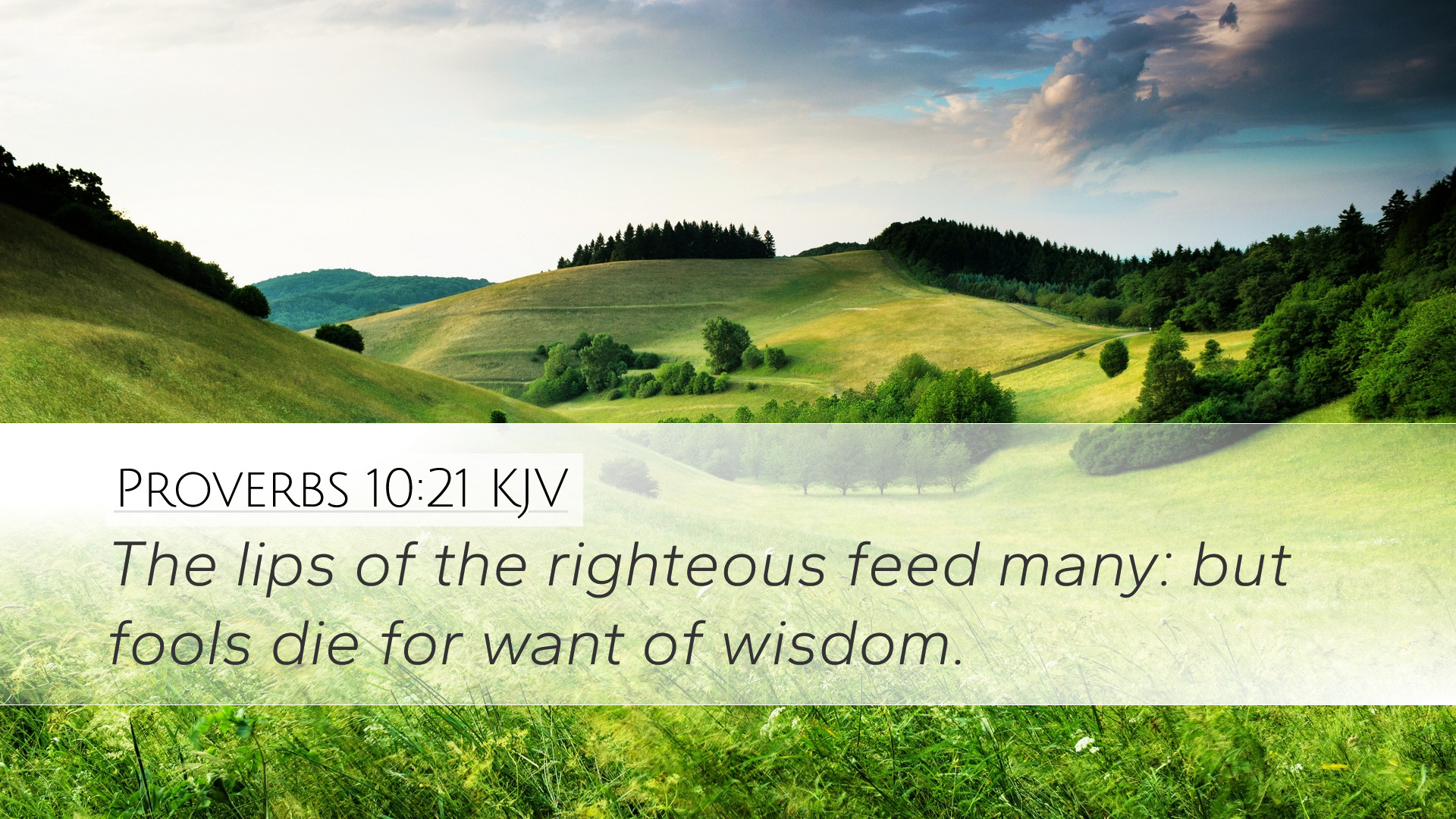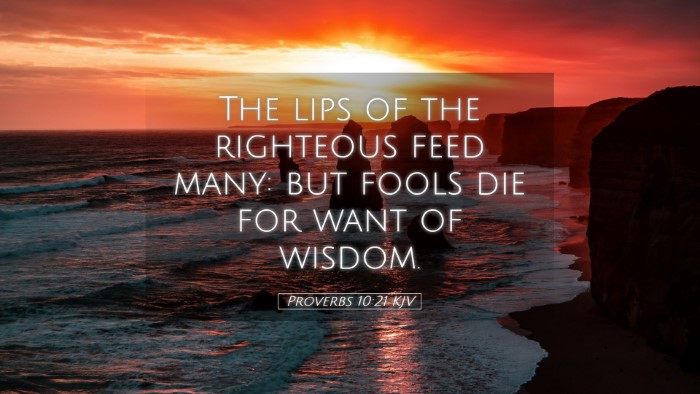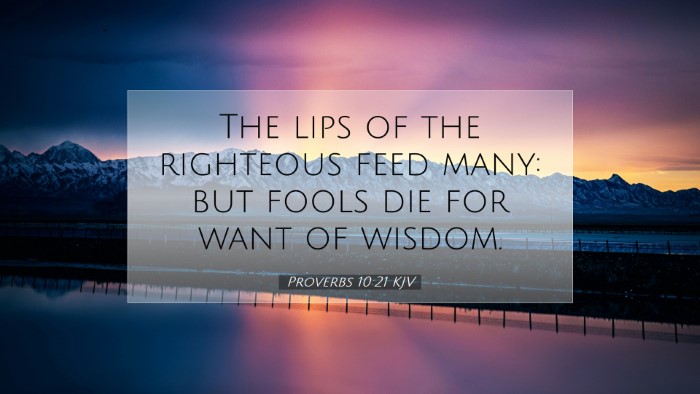Commentary on Proverbs 10:21
Verse: "The lips of the righteous feed many: but fools die for want of wisdom."
Introduction
Proverbs 10:21 presents a contrast between the effects of the speech of the righteous and that of the foolish. The righteous, characterized by their integrity and wisdom, are depicted as being life-giving and nourishing to others through their words. In stark contrast, the foolish are shown to suffer for their lack of wisdom, ultimately facing self-neglect that leads to their downfall.
Exegesis and Theological Insights
This verse highlights the dual themes of speech and wisdom, central to the book of Proverbs. The imagery of feeding suggests that words carry the power to sustain and nurture one's spiritual and moral life.
Insights from Matthew Henry
Matthew Henry emphasizes that the "lips of the righteous" denote those who speak truth and righteousness. Their words, often filled with wisdom, not only guide others but contribute to the spiritual sustenance of the community. He suggests that the faithful person’s speech can guide the naive, offering correction and encouragement, thus creating a culture of wisdom.
Furthermore, Henry reflects on the dire fate of fools, stating that their lack of wisdom leads to ruin. The absence of wise counsel leaves them isolated and vulnerable, foreshadowing their demise. He encourages believers to share wisdom generously, as it serves the greater good of society.
Insights from Albert Barnes
Albert Barnes takes a more practical approach, interpreting the 'feeding' aspect of the righteous’ lips as a metaphor for their ability to provide guidance and support. Barnes articulates that the teaching and encouragement from a wise person can be seen as nourishment for the spirit of those who listen.
He also highlights the consequences of foolhardiness - that those lacking wisdom ultimately suffer from their ignorance. Such individuals fail to grasp the significance of wise teaching, inevitably leading to their own destruction. Barnes calls the attention of the reader to the need for wisdom in daily living and the ramifications of neglecting this virtue.
Insights from Adam Clarke
Adam Clarke elaborates on the implication of the word "feed." He postulates that the righteous, through their insightful and constructive rhetoric, cultivate a healthy environment where people can thrive. He affirms that just as physical food nourishes the body, wise and righteous words nourish the soul.
Clarke further discusses the fate of the foolish, equating their demise to a starvation for wisdom. He connects this theme to the idea that the world often underestimates the importance of wise counsel, losing sight of the truth that spiritual wisdom is as crucial as physical sustenance.
Application for Pastors and Theologians
The implications of Proverbs 10:21 are profound and far-reaching. For pastors and church leaders, this verse serves as a reminder of the powerful impact of their words. It underlines the responsibility that comes with teaching and guiding the congregation.
-
Nurturing Community: Pastors should recognize their role in nurturing faith and wisdom among their congregants. Encouraging open discussions, providing biblical teachings, and fostering a culture of encouragement can mirror the nourishing impact described in the verse.
-
Wisdom in Leadership: Church leaders need to assess their speech and teachings, ensuring they align with the righteousness described in the text. Leadership in the church is not just about authority, but about leading through wise counsel and example.
-
Addressing Foolishness: Addressing the folly of others with grace and truth is crucial. Leaders must guide individuals towards wisdom while being sensitive to their struggles and needs.
Conclusion
Proverbs 10:21 encapsulates the essence of effective communication in the life of the believer. Drawing from the rich insights of respected commentaries, we can see that the words of the righteous are life-generating, while the foolish suffer due to their lack of wisdom. This verse not only encourages believers to strive for righteousness but also to actively share and cultivate wisdom in their community. For scholars and students of the Bible, understanding this contrast portrays the pivotal role of wisdom in shaping lives and societies.
In a world that desperately needs guidance and truth, the church must rise to become a place where wisdom is shared freely, ensuring that all may partake of the sustenance that comes from the lips of those who seek righteousness.


